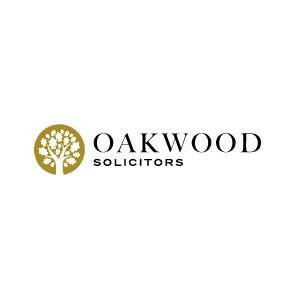Best Probate Lawyers in Leeds
Share your needs with us, get contacted by law firms.
Free. Takes 2 min.
List of the best lawyers in Leeds, United Kingdom
About Probate Law in Leeds, United Kingdom
Probate in Leeds, United Kingdom, is the process that occurs after a person's death to settle their estates. It involves dealing with the deceased's legal and financial affairs including their property, money, and possessions. The process is governed by the UK Probate Law and is administered through the probate registry of the Courts and Tribunals Service. Probate may involve proving the validity of the deceased's will, paying their debts and taxes, and distributing their assets according to their will or the laws of intestacy if there is no will.
Why You May Need a Lawyer
Probate is a complex area of law. You may require a lawyer to assist with the estate administration, special circumstances, or disputes. If the deceased's estate is large, contains foreign property or assets, involves a business, or is likely to be contested, legal help may be required. A lawyer will also be crucial if the deceased died intestate (without leaving a will), as the distribution of assets follows strict legal rules. Importantly, if an executor is unsure about their duties, a lawyer can provide guidance to avoid personal liability.
Local Laws Overview
The key aspects of local laws relevant to Probate in Leeds involve the inheritance tax, the laws of intestacy, and the processing times. Local laws stipulate that if the estate's worth exceeds the Inheritance Tax threshold, it must pay Inheritance Tax. The laws of intestacy come into effect if the deceased did not leave a will, dictating who inherits their estate. Furthermore, the UK Probate Law states that it can take some months to complete the probate process, a time frame that might be extended due to complexities in the estate.
Frequently Asked Questions
What happens if there is no will?
If a person dies in Leeds without leaving a will, the estate will be distributed according to the laws of intestacy. Immediate family members, such as spouses, civil partners, and children, are typically first in line to inherit.
Who handles the probate process?
Usually, the executor named in the deceased's will administers the probate process. If there's no will, the court appoints an administrator, often their next of kin.
Is probate always necessary?
Probate is not always necessary, particularly where the deceased's assets are jointly owned or the estate is small. However, it is generally required for larger, complex estates or where there are potential disputes.
What duties does an executor have during probate?
An executor is responsible for identifying and valuing the deceased's assets, settling any debts and taxes, and distributing the remaining assets as per the will or laws of intestacy.
How long does the probate process take?
The probate process in Leeds can take several months to a year or more to complete, depending on the complexity of the estate.
Additional Resources
For more information on Probate, you can look to resources such as Leeds Probate Registry and the Courts and Tribunals Service. Other resources include the Inheritance Tax helpline by HM Revenue and Customs, and the Citizens Advice Bureau for free, impartial advice.
Next Steps
If you require legal assistance with Probate in Leeds, consult or appoint a solicitor who specialises in Probate law. They will provide appropriate advice tailored to your situation and can handle all legal obligations, ensuring a smooth probate process. Additionally, ensure that you understand your duties and responsibilities as an executor or administrator and make yourself familiar with the resources available to you.
Lawzana helps you find the best lawyers and law firms in Leeds through a curated and pre-screened list of qualified legal professionals. Our platform offers rankings and detailed profiles of attorneys and law firms, allowing you to compare based on practice areas, including Probate, experience, and client feedback.
Each profile includes a description of the firm's areas of practice, client reviews, team members and partners, year of establishment, spoken languages, office locations, contact information, social media presence, and any published articles or resources. Most firms on our platform speak English and are experienced in both local and international legal matters.
Get a quote from top-rated law firms in Leeds, United Kingdom — quickly, securely, and without unnecessary hassle.
Disclaimer:
The information provided on this page is for general informational purposes only and does not constitute legal advice. While we strive to ensure the accuracy and relevance of the content, legal information may change over time, and interpretations of the law can vary. You should always consult with a qualified legal professional for advice specific to your situation.
We disclaim all liability for actions taken or not taken based on the content of this page. If you believe any information is incorrect or outdated, please contact us, and we will review and update it where appropriate.












